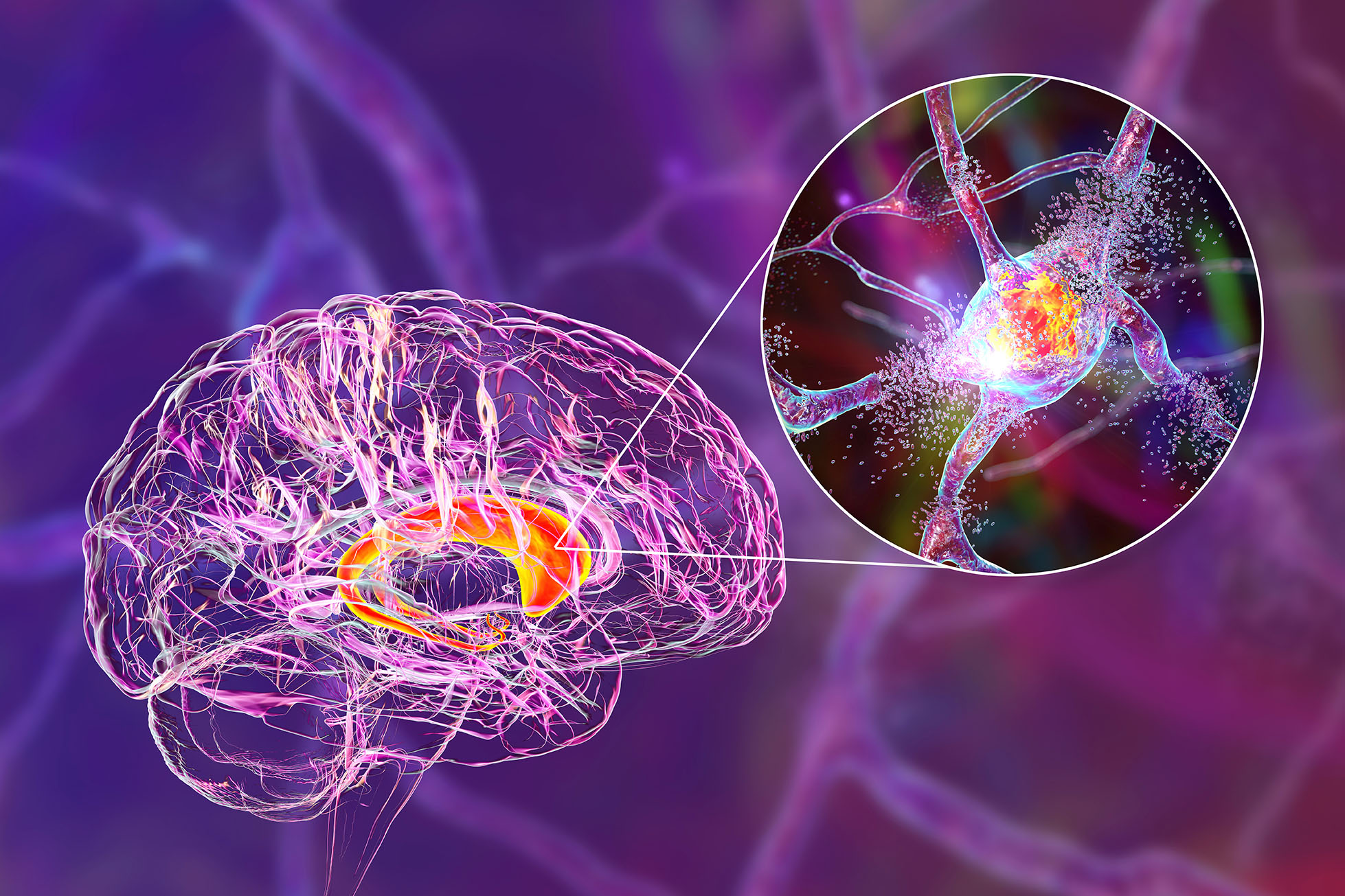

Neurodegenerative diseases are diseases that cause the progressive loss of neurons, or nerve cells, in the brain and other parts of the nervous system. This damage results in a decline in cognitive function, movement, and other bodily functions.
There are many different neurodegenerative diseases, each with its own unique set of symptoms and progression. Some of the most common neurodegenerative diseases include:
There is no cure for any neurodegenerative disease, but there are treatments that can help to slow the progression of the disease and improve symptoms. Research is ongoing to find new treatments and a cure for these diseases.
There is no cure for neurodegenerative diseases, but there are treatments that can slow the progression of the disease and improve quality of life.

Noun: A disease that causes the progressive loss of neurons.
Adjective: Relating to neurodegeneration or a neurodegenerative disease.
The word "neurodegenerative" is a compound word that is made up of the words "neuro-" and "degenerative." The word "neuro-" refers to the nervous system, and the word "degenerative" refers to a process of decline or deterioration.
What happens when you have a neurodegenerative desease?
Question:
What does the term "neurodegenerative" mean, and what are some common examples of neurodegenerative diseases?
Answer:
The term "neurodegenerative" refers to a category of diseases characterised by the progressive degeneration and deterioration of nerve cells, particularly within the central nervous system (brain and spinal cord) and sometimes the peripheral nervous system. This degeneration leads to a decline in the normal functioning of these nerve cells, resulting in various cognitive, motor, and sensory impairments over time.
Several common examples of neurodegenerative diseases include Alzheimer's disease, Parkinson's disease, Huntington's disease, and amyotrophic lateral sclerosis (ALS). In Alzheimer's disease, there is a gradual loss of memory, cognitive abilities, and behaviour control. Parkinson's disease involves the progressive loss of dopamine-producing cells, leading to tremors, rigidity, and difficulty in movement. Huntington's disease leads to motor dysfunction, emotional disturbances, and cognitive decline due to a genetic mutation. ALS, also known as Lou Gehrig's disease, affects motor neurons, resulting in muscle weakness and eventual paralysis.
These conditions share the common feature of progressive nerve cell degeneration, but they differ in their specific symptoms, affected regions of the nervous system, and underlying mechanisms. Research into neurodegenerative diseases is ongoing to understand their causes, develop treatments, and improve the quality of life for individuals affected by these challenging conditions.
Address
Developing Experts Limited
Exchange Street Buildings
35-37 Exchange Street
Norwich
NR2 1DP
UK
Phone
01603 273515
Email
hello@developingexperts.com
Copyright 2025 Developing Experts, All rights reserved.